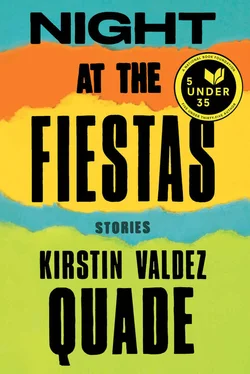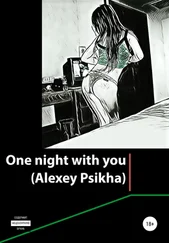Beatrice showed no such complexity. The baby laughed often and loudly, and when she was tired or hungry, she wailed with the entire force of her strong little being. The world revolved around Beatrice, and Beatrice was appropriately ungrateful.
Likely, Monica thought, Cordelia would grow to resent this trait in her sister, this assumption that her needs would be met, that the world had a place for her. But for now, Cordelia nestled around Beatrice, her body curved protectively. To keep her from the cold, or from Monica? If Monica wasn’t careful, the two of them would grow ever closer, in league against her.
After lunch — tomato soup that chilled almost as soon as it touched the bowls — Beatrice fell into a fierce sleep: fists balled up tight, brow pinched, her red cheeks splotched and tear-streaked.
“I hope she doesn’t freeze,” said Cordelia.
“Just a few more hours, then Elliot will fix the heater.”
“What if he doesn’t know how?”
“He probably will. And if not we’ll drive to buy a new one.”
Bleakly, Cordelia said, “You love him more than you love us.”
Monica put her arm around the girl, gave a gentle shake. They’d been down this road before. “That’s silly. I love you differently. You two are my precious daughters.”
Cordelia was stiff and muffled under her arm. She was looking at her sleeping sister. “But you love him more than you love me.”
“Want me to read to you?” Monica tapped her Riverside Shakespeare , which she had planned to study cover to cover months ago and still hadn’t touched, except to read aloud, at Cordelia’s insistence, scenes featuring her namesake. Now Cordelia just shook her head.
“I have an idea,” Monica said. “We can play dress-up!” Actually, it was an idiotic idea — it was far too cold to be changing in and out of clothes.
“Fine,” said Cordelia, listless.
Monica dropped down from the loft and began rummaging in the tiny particleboard closet, while Cordelia peered over the bunk. There wasn’t much worth dressing up in. Some scarves: heavy, knitted, utilitarian. A cotton skirt. Elliot’s felt Indiana Jones hat, brim stained with dirt and sweat. Monica didn’t even like to touch it.
She reached for her dress. It was in its dry-cleaning plastic, hadn’t been worn in years, not since Monica had left Cordelia with her mother and gone with her first husband to one of his parents’ gallery openings in Los Angeles. Black, elegant, heavy with beadwork. Silk embroidery ringed the hem and climbed the length of the dress to the deep neckline. She remembered her mother-in-law handing her the box, the shock of being given a gift so absolutely perfect, as though the woman had been a fairy godmother, able to gauge her aspirations along with her size. And the attention: that night, the gallery lights glinting off the beads, Monica had felt as though she were as essential to this evening as the artist, and it seemed the dress itself had had the power to transform her.
“Do you like it?” Monica held it against her body, rocked her hips so the skirt swung.
Cordelia shrugged.
Monica was surprised at her disappointment. She’d imagined Cordelia reaching out to touch the hem with a single reverent finger.
“Your dad’s parents bought this for me when you were a baby.”
Cordelia’s face was shuttered, as it always was when her father was mentioned, as if, knowing how little interest he had in her, she’d decided to show none in him. “It’s ugly,” she said finally.
“Oh, come on. It’s not ugly. It cost over three hundred dollars.”
The dress was the most expensive item Monica owned — except for her car, which had been her father’s before he died. God knows why she’d brought the dress when the rest of her belongings went to her mother’s basement. Did Monica think there would be any place within three hundred miles where a dress like this would be appropriate? Did she think Elliot was that kind of man?
“Want to try it on?” She slipped it off the hanger. “We can pin the straps.”
“No,” said Cordelia, her cheek pressed into her forearm. “You put it on.”
Monica slid out of her down vest, peeled off the two sweaters and her jeans and her long underwear. She unhooked the heavy white nursing bra and slid the thick straps off her shoulders, pulled off her wool socks. She stood naked before the narrow mirror that hung on the closet door. The skin at her belly was still loose and puckered from Beatrice, her legs purplish and hairy. Her swollen breasts hung heavy, and despite the temperature, her nipples barely tightened.
“Well?” said Cordelia. “What are you waiting for?”
“Yes, yes.” Monica slipped the dress over her head. The silk was so cold against her skin that she gasped, laughing, and her goosebumps rippled through the light fabric. “Last time I wore this it was ninety degrees in L.A.!” Monica’s smile faded as she caught her reflection — the ridges of belly and hip under the fabric, her face, broad and splotchy hovering above — and she couldn’t help feeling as though she’d done some violence to the dress by letting herself get like this.
“What did I wear that day?”
“It was just me and your dad.”
Cordelia rolled away. “You look ugly.”
Hurt flashed through Monica, then fury. This child, seven years old, wanted to wound her and knew exactly how. In a minute Cordelia was paging sulkily through a book.
Monica was beautiful — men were always telling her so — and at one time it had seemed only right that she should wear clothes like this. After all, Monica had at seventeen been proposed to in the waiting room of her dentist’s office by a wealthy Frenchman who was visiting Santa Fe. “You are the most beautiful woman I have ever saw,” he told her, and Monica had believed him. He’d waited for her to have her teeth cleaned, and she’d allowed him to take her to dinner at a restaurant on Canyon Road, a restaurant so expensive there were no prices on the menu. Her whole life in Santa Fe, and she’d never even known this restaurant existed. “This is French,” he explained, and ordered escargot and old wine, pâté de lapin and roast duck avec sauce Roquefort, gratinée de Coquille St. Jacques. He insisted she try it all, kept passing his full fork across the table to her. “Beautiful women should eat beautiful food,” he said, and she’d agreed. At the end of the night he drove her back to her mother’s house and seemed resigned when she told him she couldn’t marry him because she had to finish high school. She’d thought then that’s what her future was: opportunity after opportunity unspooling around her.
Monica had therefore been ready two years later when she began dating the man who would be her first husband, ready to exchange college and literature for proximity to wealth, ready to stand smiling with a glass of wine in his parents’ galleries and to be kissed by old men who were influential in the art world. How embarrassed she’d been by her mother, with her faulty grammar and fake Anglicized name, her eagerness around his family, her transparent admiration of their money.
But Peter had liked her mother’s accent, had liked explaining things to Monica. “My little conquistador,” he called her. “My little Mexican.” Peter felt he’d discovered Monica, plucked her out of a provincial existence, just as he’d begun to discover and show outsider artists: an autistic man who built intricate scale models of his neighborhood out of toothpicks and plaster, an elderly woman who made elaborate cut-paper crowd scenes with an X-ACTO knife, a soybean farmer who painted large canvases of sloppy, expressive horses. Always seeking in people overlooked value that he could commodify.
Monica hadn’t, however, anticipated the pleasure he got in humiliating her — laughing at her in public for working her way through the classics or for not knowing framed Monet prints were tacky or for pretending to taste the difference in wine. Once, passing her as she read War and Peace, Peter yanked the book from her hands and snapped it shut. “You think reading Tolstoy means you’re smart. But it just means you’re literate.” She hadn’t been prepared for her own screaming rage, or an existence, which, even in the house his parents bought them with real art on the walls, still seemed cramped and insignificant. And above all she hadn’t been prepared for pregnancy: Cordelia, a curled exacting weight in her womb, anchoring her in the life she’d chosen.
Читать дальше












